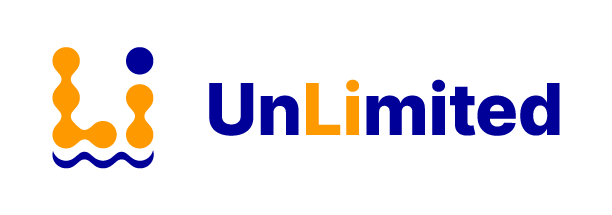Project description
UnLimited: Investigations into lithium production from hot deep waters in Germany
The partners of UnLimited, funded by the German Federal Ministry of Economic Affairs and Climate Action, aim to develop and test an extraction process for the co-production of lithium from hot deep waters in Germany.
The challenge: developing an efficient and environmentally friendly extraction process
The major focus of the investigation is to identify qualified lithium-selective adsorbents. In addition to the material properties, environmental compatibility in production, use and recycling (or disposal) are important parameters for adsorbent selection. The specific requirements of deep water in the Upper Rhine Graben (ORG) and North German Basin (NGB) should be, in principle, considered in the selection of adsorbents.
This requires new monitoring priorities such as the identification of possible adsorption indicators, as well as the investigation of the adsorption behavior of natural radionuclides dissolved in the thermal water connected with the tested adsorbents.
All results generated in the project are an integral part of a lifecycle assessment, which optimizes and evaluates the sustainable and environmentally friendly use of adsorbents for lithium production. The necessary techno-economic and techno-ecological analyses are hence part of UnLimited.
Process development: from the initial idea to the pilot plant
Suitable adsorbents will be tested at selected test sites including the Bruchsal geothermal power plant, which has been operated by EnBW Energie Baden-Württemberg AG together with Stadtwerke Bruchsal since 2010.
For this purpose, a proper plant design and the construction of a flow reactor are required in consideration of the laboratory results. In this context realistic extraction rates shall be determined in a field test and potential negative impact of the extraction process on the regular operation of the geothermal plant itself shall be clarified. An operation monitoring system will be developed, tested and optimized as far as possible to provide reliable answers to the unknown factors within the extraction process.
Since the sustainability of the resource plays a key role in the economic production of lithium, a resource analysis based on investigations into the origin of the dissolved lithium salts is intended to determine the overall supply capacity for the ORG and the NGB.
The amount of lithium, which is extracted throughout 8,000 operating hours annually at Bruchsal geothermal plant but is so far reinjected unused back into the underground, is alone sufficient to produce about 20,000 car batteries. Since Germany covers its demand for lithium entirely through imports, it is conceivable to scale the extraction of the raw material beyond the plant in Bruchsal.
Knowledge transfer: dissemination of project results
During the project, connections with other research groups and operators dealing with lithium production will be established and maintained. For this purpose, relevant results from the research project will be presented to the geothermal community and other interested parties in self-organized workshops and webinars as well as at expert conferences. This will be supported by publications in various media (project website, regular newsletters, flyers, press releases, etc.) and scientific articles in trade journals.

